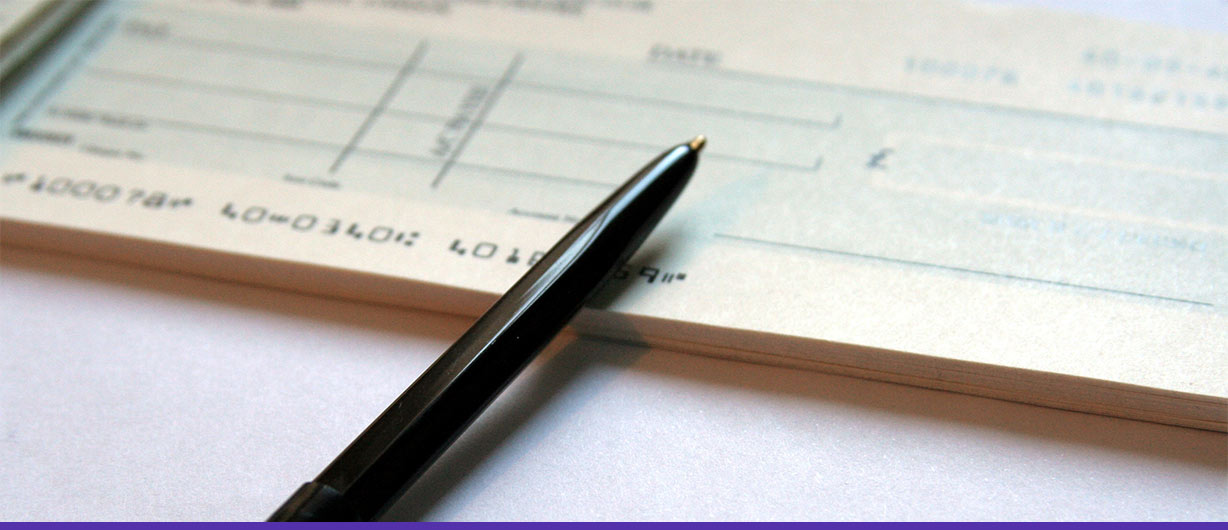November 10 2023 | By Wajiha Danish | 5 minutes Read

What’s a stale-dated check?
What kinds of checks can get stale?
How can I tell if a check has gone stale?
Is it okay to use old checks?
Can I deposit or cash an old check?
What are the risks of dealing with old checks?
Rejected after acceptance:
What to do if you have an old check:
1. Unclaimed Property & Escheatment
2. Bouncing checks
3. Negative account balance
Let’s wrap it up…
Managing your business finances involves various aspects. You must handle bill payments, clear debts, and ensure timely employee payment. There are instances where you may need to write or receive a check for transactions.
However, dealing with physical checks poses a challenge – keeping track of their whereabouts. They can easily be misplaced or accidentally discarded with other waste. Losing a check or delaying its deposit can result in it becoming stale-dated.
When you write a check, you instruct your bank to transfer money from your account to another. Before using this payment method:
1. Allow ample time for the check to reach the intended recipient, especially if you’re sending it by mail.
2. Confirm that your account has sufficient funds to avoid additional fees.
Now, let’s dive deep into understanding a stale-dated check and how it functions.
A stale, or stale-dated, is an old check that has not been cashed for over six months. Even though banks or other financial institutions may allow you to deposit or cash it, they’re not obligated to do so by law.
The six-month rule usually applies to personal and business checks, including payroll ones. But for other types of checks, the timeframe can vary.
Checks from the U.S. Treasury (like a federal tax refund) are good for a year from the date they’re issued. State government checks usually stay valid for six months to a year, depending on the state.
Depending on various factors, the expiration time for a cashier’s check can range from 60 days to never. Sometimes, the issuing bank may mention an expiration date on the check. The only exception is a certified check, which must be honored even after 180 days.
There are a few ways to determine if a check is stale, whether you got it or wrote it.
Check the date on the check. If it’s over 180 days old, it’s stale.
Look for a time limit set by the issuer. Some checks have preprinted language stating how long they’re valid. However, even if it seems expired, the bank might still accept it.
Keep an eye on your written checks. Check your account to ensure no checks older than six months are still uncashed; the bank might consider them stale.
If a personal or business check is more than six months old, it’s considered stale. However, that doesn’t automatically make it worthless, bad, or unacceptable to your bank. It simply gives the bank the choice to accept or reject the check.
Maybe. Banks can reject an old check and send it back to the person who wrote it, but they might still choose to honor it. Before attempting to cash an old check, it’s wise to contact the bank associated with the account to find out their policy.
If you or someone else tries to cash an old check you wrote, here are some things to be cautious about:
Your bank might let you deposit the check, but the issuing bank can reject it. If this happens, your account may lose funds, and you could be charged a penalty instead.
It might be considered old or stale if you’ve got a check lying around for more than six months without being cashed. Trying to deposit or cash now comes with risks – it could be rejected by your bank or sent back by the one who issued the check. Before attempting anything:
– Contact the person who wrote the check and ask if they can give you a new one.
– If you’re the one who wrote the check and it has yet to be cashed, check with the recipient to see if they still plan to cash it.
– If they do, offer to write a new check but get the old one back first or stop payment to avoid surprise fees.
In the United States, each state has laws about unclaimed property, which includes checks that have yet to be cashed within a certain time. Businesses must give away unclaimed property after a specific period, including uncashed checks, to contractors, vendors, employees, and stockholders.
States have different rules about when businesses must report unclaimed property, and the period before checks are considered unclaimed can vary. The Securities and Exchange Commission (SEC) suggests it’s often around five years, but it’s crucial to check your state’s laws to ensure that it is equal to that. The National Association of Unclaimed Property recommends sending a formal letter to business owners warning them that their property may become unclaimed. This gives them time to react. If informing the business owner doesn’t work, the state will step in, holding the account as a bookkeeping entry. However, the former owner can still make a claim. d a fee.
Even if both banks accept the old check, it could bounce later due to insufficient funds. If the check writer closes their account or doesn’t have enough money, you’ll be responsible for the check amount and possible fees.
If someone tries to cash an old check from your account, your bank might deduct the funds, even if you don’t have enough. This can lead to overdrawing your account and incurring fees unless you stop the payment.
Imagine a check as a perishable item with a shelf life of six months. After that period, it becomes stale and useless for payment. If you miss this window, the bank won’t accept it, and you won’t get the money in your account. Cash or deposit the check within the first month to prevent any hassle or loss. It’s a simple step to keep your finances running smoothly.
Also Read: What Are Errors Of Accounting, Its Types And How To Avoid Them?
Subscribe for business tips, tax updates, financial fundamentals and more.
MORE BLOGS

Running a SaaS business can look simple from the outside. Customers sign up, pay monthly or yearly, and keep using the product. Quite straightforward, right? Behind […]
Learn More →
Revenue is the heartbeat of any SaaS business. But how and when that revenue shows up on your books can change everything, from investor confidence to […]
Learn More →
If you’re a small business, we will absolutely get it if you say you’re having a hard time choosing a payment platform for your company. And […]
Learn More →